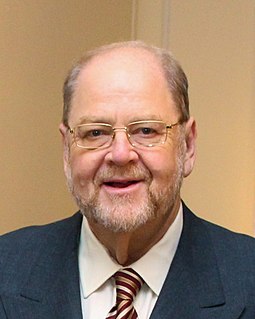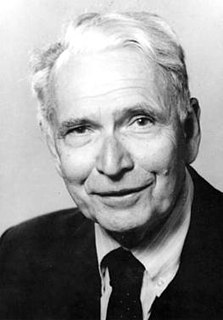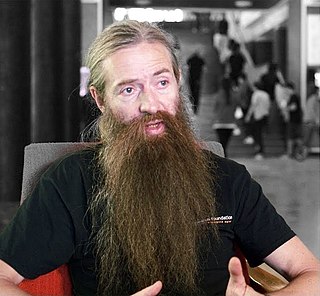A Quote by James Rothman
One of the major lessons in all of biochemistry, cell biology and molecular medicine is that when proteins operate at the sub cellular level, they behave in a certain way as if they're mechanical machinery.
Related Quotes
If belief in evolution is a requirement to be a real scientist, it’s interesting to consider a quote from Dr. Marc Kirschner, founding chair of the Department of Systems Biology at Harvard Medical School:
“In fact, over the last 100 years, almost all of biology has proceeded independent of evolution, except evolutionary biology itself. Molecular biology, biochemistry, physiology, have not taken evolution into account at all.
A renaissance in cellular biology has recently revealed the molecular mechanisms by which thoughts and perceptions directly influence gene activity and cell behavior...Energy psychology, through its ability to rapidly identify and reprogram limiting misconceptions, represents the most powerful and effective process to enhance physical and emotional well being.
A paradigm shift is the best a scientist can hope for. Whenever I smell an opportunity like that, I go after it. You have a new discovery that something's working in a different way than you thought. And this is particularly true in molecular and cell biology, which is structural biology and has the least potential for controversy and partisanship among the biological scientists. You're dealing with a concrete object that's either there or not there.
It could be that at some earlier time, somewhere in the universe, a civilization evolved by probably some kind of Darwinian means to a very, very high level of technology- and designed a form of life that they seeded onto perhaps this planet. And I suppose it's possible that you might find evidence for that if you look at the details of biochemistry, molecular biology, you might find a signature of some sort of designer.
We may, I believe, anticipate that the chemist of the future who is interested in the structure of proteins, nucleic acids, polysaccharides, and other complex substances with high molecular weight will come to rely upon a new structural chemistry, involving precise geometrical relationships among the atoms in the molecules and the rigorous application of the new structural principles, and that great progress will be made, through this technique, in the attack, by chemical methods, on the problems of biology and medicine.
The second half of the 20th century was a golden age of molecular biology, and it was one of the golden ages of the history of science. Molecular biology was so successful and made such a powerful alliance with the medical scientists that the two together just flourished. And they continue to flourish.


































